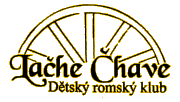I find myself once again back amongst mountains, cheese, and chocolates, but there is much left to tell; lingering thoughts prevent me from entirely rejoining the world of Swiss punctuality.
“The powerful stigma associated with being ‘Gypsy’ in the Czech Republic drives many ethnically ‘underground’ for official information and registry purposes”: It seems like a lifetime ago that I reflected upon the case of Roma pressurised into concealing their ethnicity in order to attain Czech citizenship in my predeparture blog entry. Two months in Prague and the implications of this ‘ethnic underground’ - stretching far beyond ticking boxes on census questionnaires, have become all too apparent to me…
Far-right extremism is one manifestation of the anti-Romani sentiment that has festered in the Czech lands since 1989. Less visible is the echoing of such attitudes of the majority in the self-perception of the Roma minority. Self-esteem has taken a battering as derogatory stereotypes have become partly absorbed into Roma identity. The time I have spent with Anna Chválová from the NGO Romodrom revealed to me both the far reaching effects of deflated egos and one possible remedy. I first met Anna at a conference on increasing Roma participation in political and public life. Drawn from the outset to the enthusiasm which radiated from her, I sought to learn more. Language difficulties were bridged as we danced to Romani music and she proceeded to tell me of her work.

Anna Chválová expressing her views at a conference organised by Dzeno in Melnik
Tired of the lack of space for innovation within the Czech school system, Anna had left the kindergarten she was working at to start a free time children’s club (Klub 9) for Roma children. Much emphasis is placed on overcoming the gross disparities between Roma and non-Roma in Czech schools in terms of both opportunities and outcomes. Yet above all, the programme Anna runs three days a week in Prague’s Vysočany district provides an alternative to roaming the streets. Not all the children who attend are from ghettos, but most come from impoverished households. Painting, acting, playing games, improving their writing skills; minor as they may sound, the services Anna provides gives these children opportunities they would otherwise never have had. “I used to wonder why some of the children spent so much time in the bathroom…then I realised they were washing themselves - they had no access to such facilities in their own home”. Klub 9 may be small (18m2 max.) but it has become an integral part of the local Roma community on so many levels.

Enjoying life at Klub 9 (Picture courtesy of Romodrom)
“Do you like Romani children?” the kids asked me when I visited Anna at Klub 9. The question caught me by surprise. Teaching gymnastics in an ethnically diverse part of London, I’d become virtually colour-blind; ask me to describe a child and the words cheeky, timid or naughty would spring to mind infinitely quicker than ‘black’ or ‘white’. Klub 9’s Roma children in contrast are incredibly aware that they are different and Anna does not believe that convincing them otherwise is the way forward. Instead, ‘difference’ must be transformed into something worth celebrating. Ethnicity tends to be hidden by comparably well integrated Romani children and further excludes those from the ghetto who are generally more in touch with their Romani heritage. Whilst their ethnicity is a barrier of sorts for both, denying it is not the answer. Roma must learn to be proud of their cultural roots if they are to perceive themselves as equals in mainstream Czech society.
“Our aim is to nurture pride and self-belief by highlighting what these children can do”. Anna is constantly praising the children she works with and their faces, adorned with expressions of admiration, self-confidence and happiness, are proof that her efforts are paying off.

Children from Anna's club perform at Prague's Ethnofest 2009
Nonetheless, I feel I must end on a negative. Anna’s enthusiasm and dedication alone cannot end the plight of the Roma. Tears well in her eyes as she tells of the helplessness she feels when bright Romani children are still sent to ’special’ remedial schools after failing the entry test to the mainstream basic school. Speaking Romani at home and unable to attend kindergarten for financial reasons, Roma are disadvantaged from the outset. Klub 9 offers help to prepare children for the basic school examination, but as Anna herself points out, it is those already relatively successfully integrated who regularly turn up at Klub 9; those who desperately need the kind of support Anna offers do not come.



